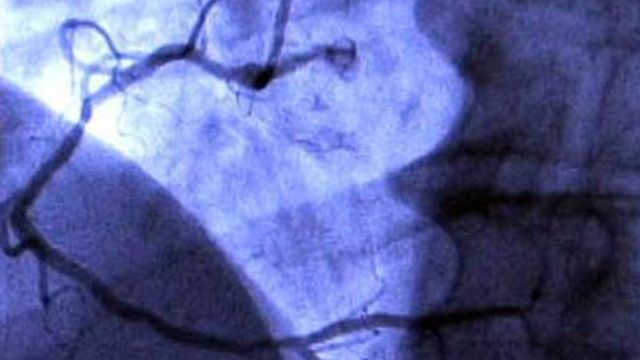Having a heart attack? N.C.'s the place to be
If you're going to have a heart attack, North Carolina might be the best state in which to have it. A program in all 119 hospitals and EMS systems in the state has shown significant improvement in patient outcomes.
Posted — UpdatedThe system of heart attack response care in the state is called RACE, Reperfusion of Acute Myocardial Infarction in Carolina Emergency Departments, and it has become a national model.
With a heart attack, there's a clot in a heart artery, and it must be treated quickly to avoid muscle damage to the heart or death. The RACE project is about coordinating and stream-lining treatment response to save lives.
In North Carolina, when someone calls 911 for a possible heart attack, the race is on. Within minutes, an EMS unit arrives to start an EKG test to confirm a heart blockage and sets the entire response plan into motion.
“That paramedic, that ER nurse, that cath lab tech, that cardiologist, they all know their job,” said Duke Cardiologist Dr. James Jollis.
Jollis says it's the first such response system anywhere in the country. The RACE project standardized heart attack treatment among hospitals and EMS systems across the state, even overcoming competitive concerns that might have delayed care for some patients in the past.
“So hospitals you wouldn't usually hear in the same sentence, Duke, Rex, UNC and WakeMed, all working together on the same page to treat heart attack patients,” Jollis said.
Before RACE, the time from the 911 call to clot clearing treatment may have taken a couple of hours. Now, in most hospitals, it happens within 30 minutes. In 2006, the hospital death rate for heart attack patients was 7.5 percent. Now it's down to 6 percent.
“What we've done is a proof of concept. We've shown that you can do this across an entire state,” Jollis said. “Over time, this will become systematic and heart attack death will become very rare in this country.>
Virginia, South Carolina and Tennessee have begun implementing RACE in their states. The American Heart Association uses the model as the basis for their Project Life Line, a nationwide project.
Another great thing about all the hospitals participating together, according to doctors, is that they're feeding in patient data which gives a more accurate picture statewide of how well the response plan is working.
• Credits
Copyright 2024 by Capitol Broadcasting Company. All rights reserved. This material may not be published, broadcast, rewritten or redistributed.





